Will LegalTech replace lawyers?
Will LegalTech replace lawyers?
Insight MinLaw goes behind the scenes to uncover stories about how the work we do impacts you.
On 19 July 2022, MinLaw launched the Legal Tech Platform Initiative (LTPI), to support Singapore law firms to reinvigorate their digitalisation journey (Watch the highlights here).
The initiative comprises (a) the Legal Technology Platform (LTP), a matter management and collaboration tool, (b) the LTPI funding programme, as well as (c) industry engagement initiatives.
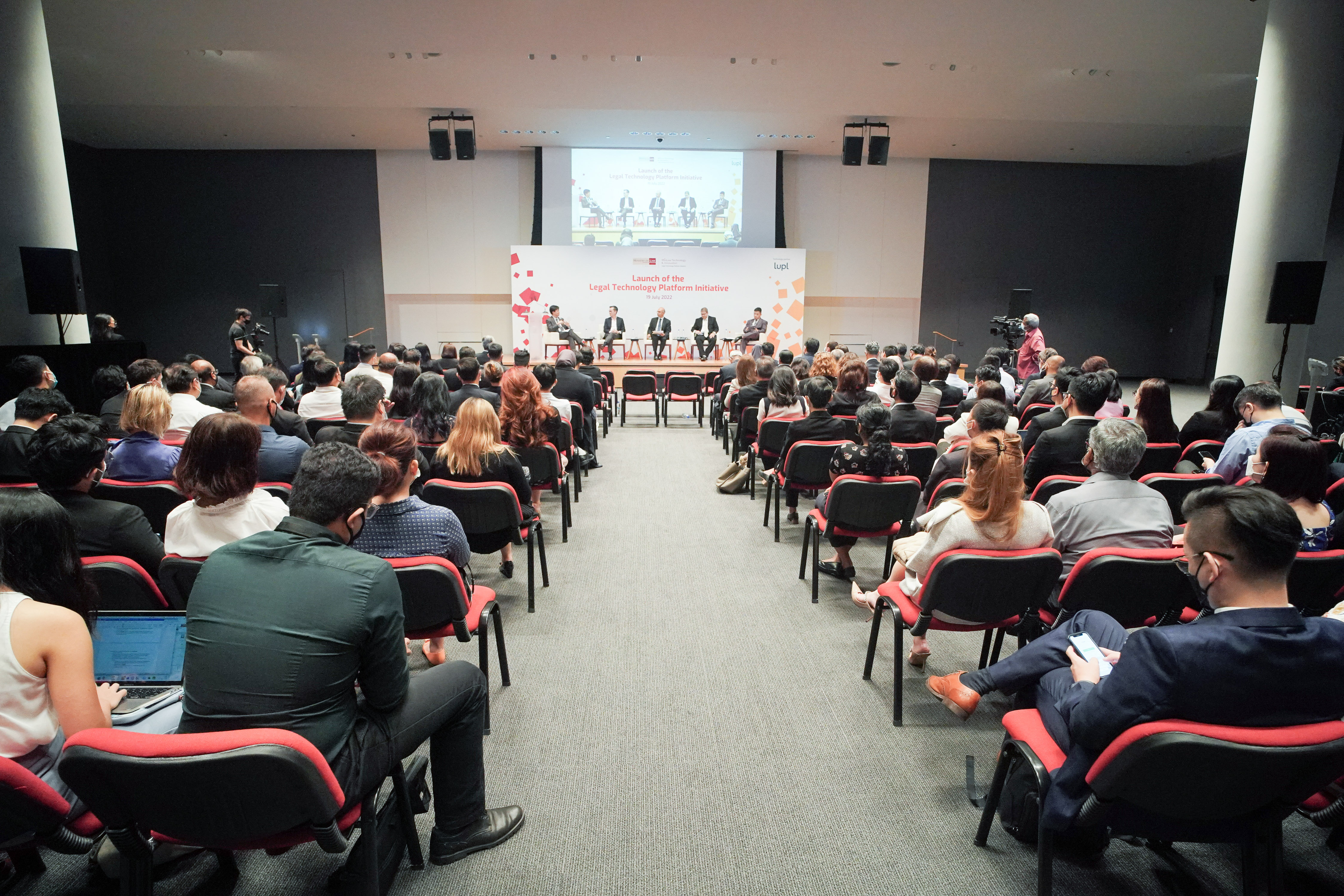
Keynote panel discussion at the launch of LTPI
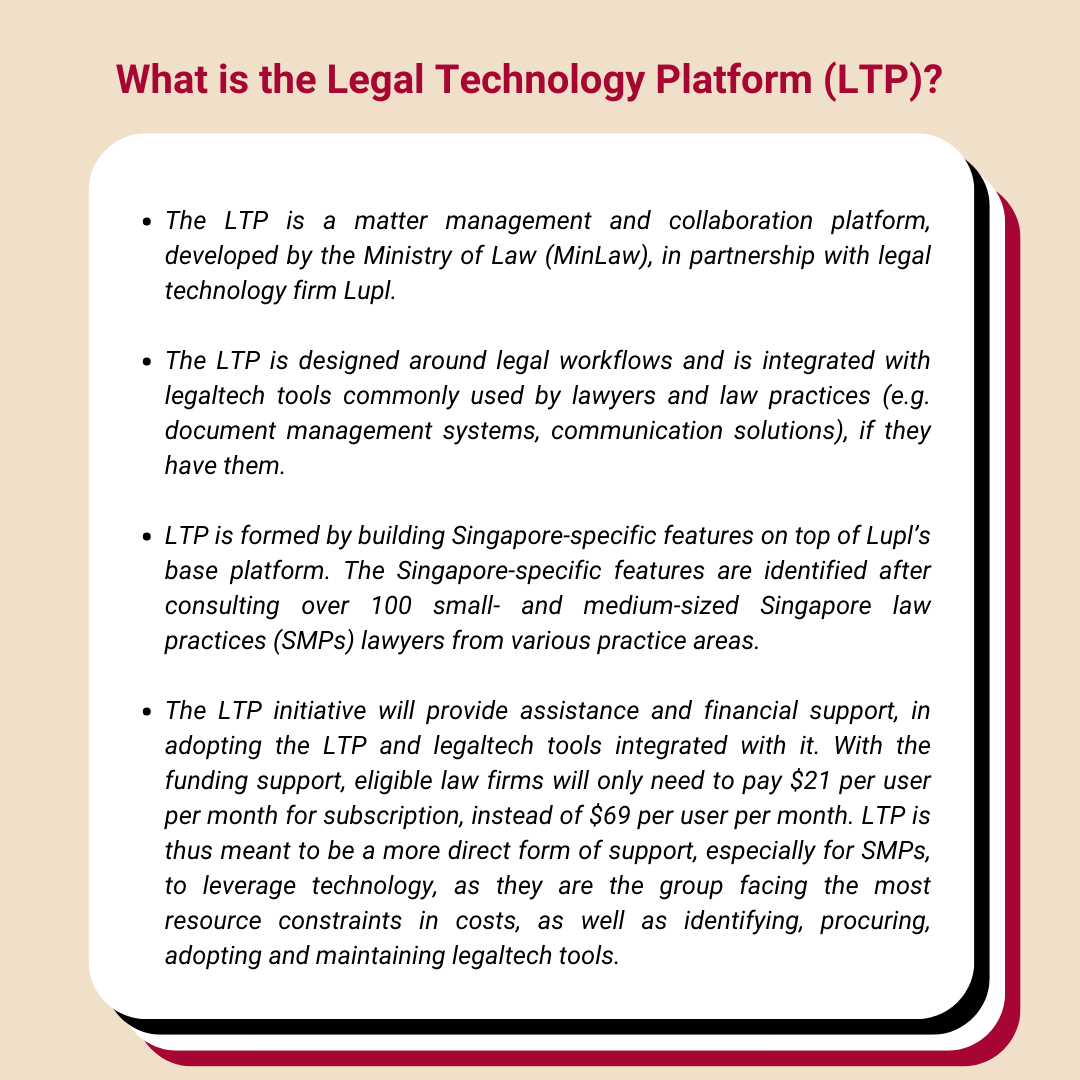
Designed to streamline legal workflows, the LTP includes key features such as a legal project management toolkit, customisable matter templates, as well as integration with select practice management systems (“PMS”), document management systems (“DMS”), communications tool such as WhatsApp, and other commonly used legaltech tools.
The team identified features that will be most useful to Singapore lawyers, such as integration with WhatsApp and data localization, through extensive consultation with the legal industry.
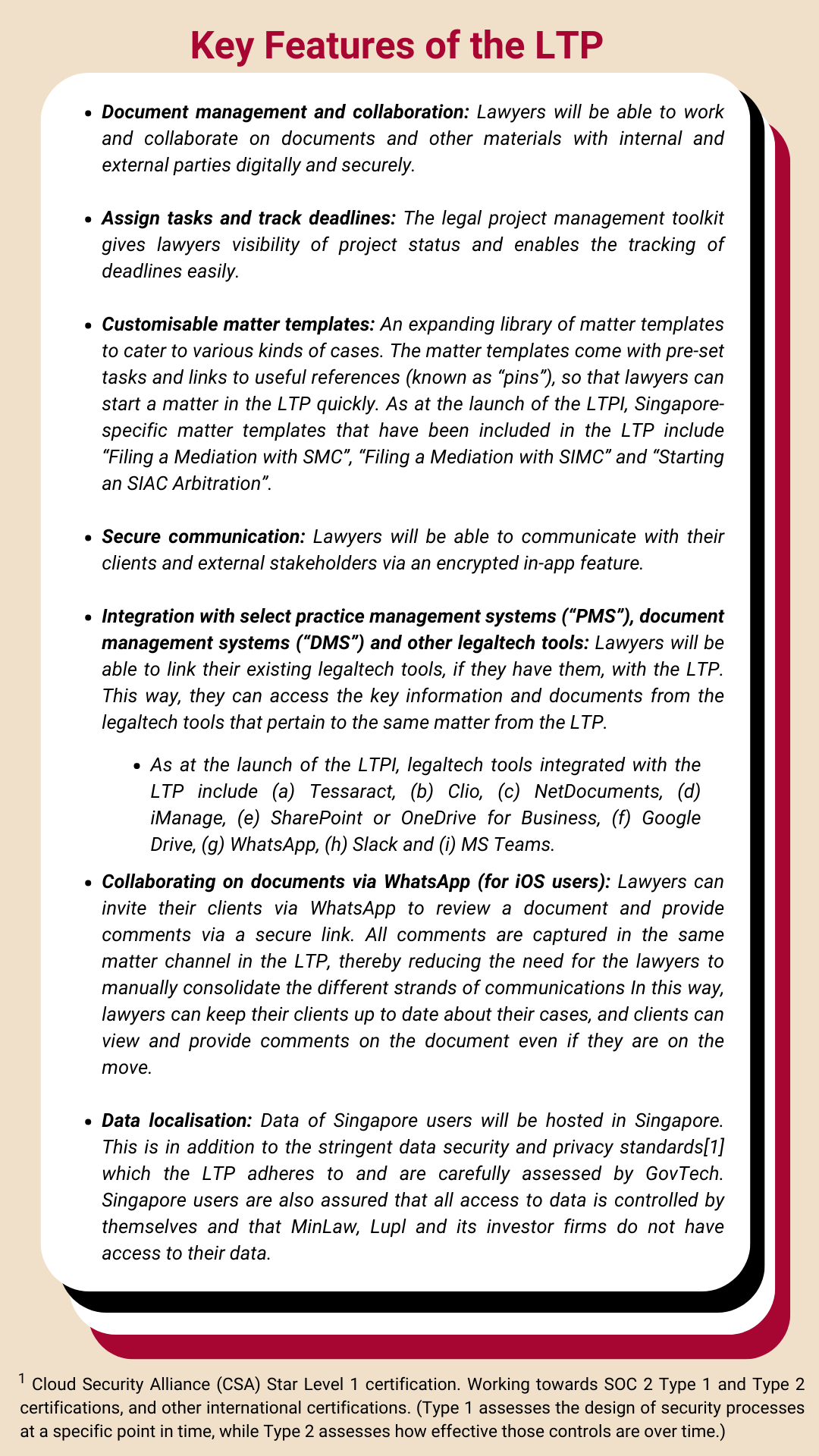
Insight MinLaw caught up with Chief Commercial Officer and Co-Founder of Lupl, Matthew Pollins as well as Director at MinLaw (Professional Services Programme Office) Alyssa Toh, to share more on what went behind the building of the LTP and other aspects of the LTPI
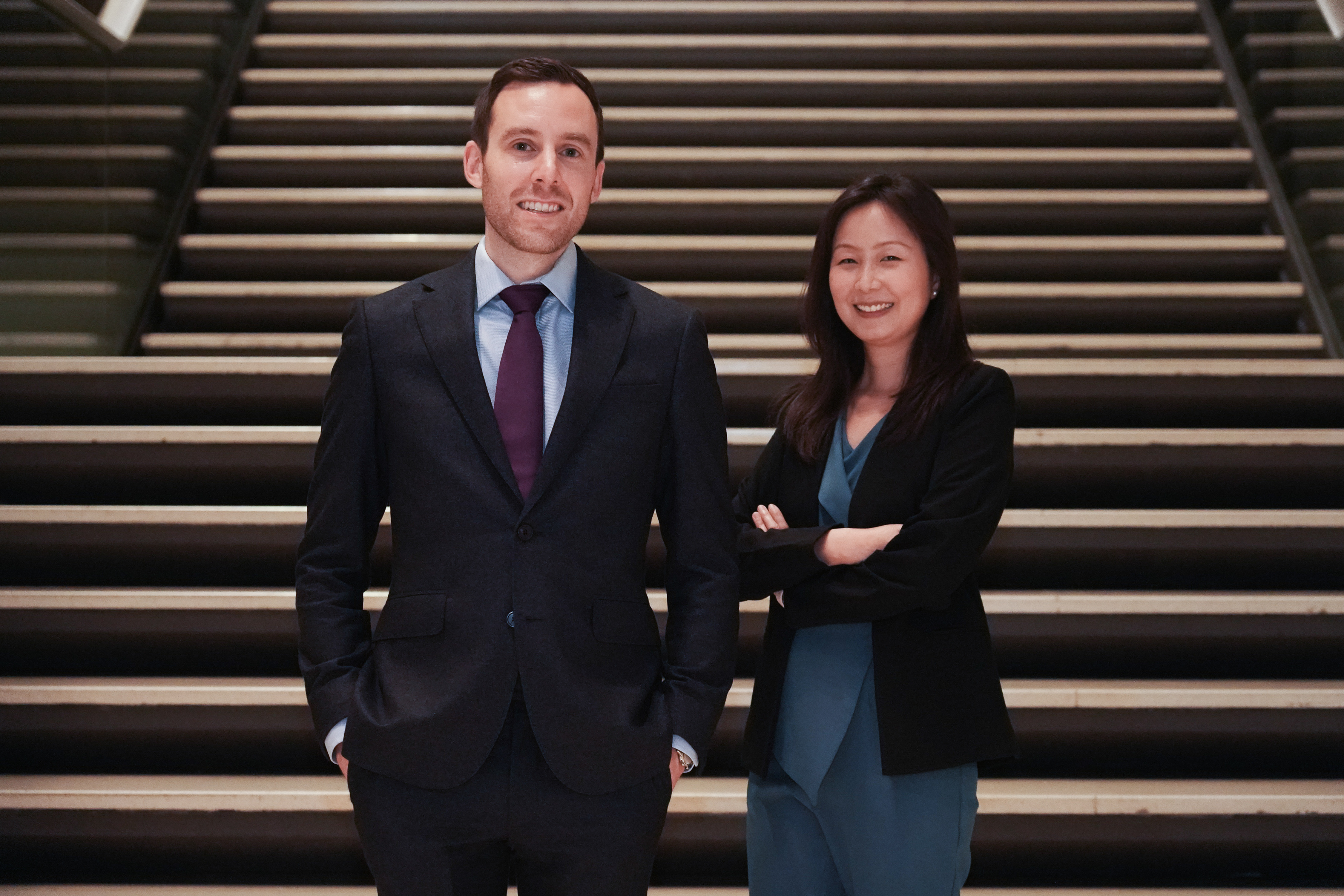
Chief Commercial Officer and Co-Founder of Lupl, Matthew Pollins (left) and Director for Professional Services Programme Office at Ministry of Law, Alyssa Toh (right)
Insight MinLaw: What are some of the biggest challenges and trends you have noticed in LegalTech, locally and globally?
Matt: The big trend right now is integration. There is a growing amount of LegalTech out there but too often, those tools and systems do not integrate well with each other. That was one of the biggest frustrations we noted from law firms and legal departments all over the world, including in Singapore. That is why we are so excited about the LTPI, because it is all about bringing things together in a simple and intuitive system, with a combination of rich native functionality and integrations with key systems.
Alyssa: In our engagements with the industry, many lawyers highlighted a range of challenges that cause inefficiencies in their daily workflows. These include having to toggle among various communication mediums like messaging applications, emails, and Microsoft Teams with clients, because it requires additional effort to track and document essential information for cases. Lawyers also struggle to consistently track down the amount of work and level of profitability for each client’s case in real time.
While there are many tools available in the market, most tools are designed for discrete functions and do not allow lawyers to have a single, consolidated view of their matters. In addition, Small and Medium Practices (SMPs) may not be resourced from a cost and expertise point of view, to be able to effectively curate suitable solutions.
Insight MinLaw: What was the impetus and the factors considered behind the development of LTP?
Alyssa: The LTP is conceptualised with lawyers and law firms in mind and meant to address their pain points, and targeted to directly help SMPs. It is designed around lawyers’ typical matter workflows so that it is intuitive to use. As a cloud/browser-based solution, it minimises the need for law firms to set up specialised IT expertise to manage the firm’s technology suite.
At the same time, we made sure that the LTP is integrated with other commonly used legaltech tools, to ensure that it caters to the needs of legal firms at various stages of digitalisation. Law firms which are just starting their digitalisation journey can easily choose and onboard a comprehensive suite of technology tools which are already widely accepted by the market. The inter-operability with existing legaltech tools also makes it easier for law firms with existing solutions to come onboard seamlessly.
Matt: We spent several months just listening to lawyers at Singapore law firms, working closely with MinLaw and consulting with key industry groups in Law Society and others. We wanted to make sure we had a deeper understanding of their workflows, current technology systems, and the key challenges. That input directly shaped the features for the LTP.
For example, we heard a lot from lawyers about the importance of data protection, and how data localisation will provide additional comfort, that is why the LTP is hosted in Singapore. Similarly, every lawyer we spoke to mentioned that their clients increasingly tend to communicate with them via WhatsApp – more so than in any other jurisdiction we have come across.
For that reason, we built a WhatsApp integration, which allows lawyers to meet clients where they are, without sacrificing security and compliance. This iterative development process is never complete – it is a constant progress. Currently, we are experiencing a high demand for more connectivity with Government and public data systems, such as eLitigation, and this is next on our development roadmap.
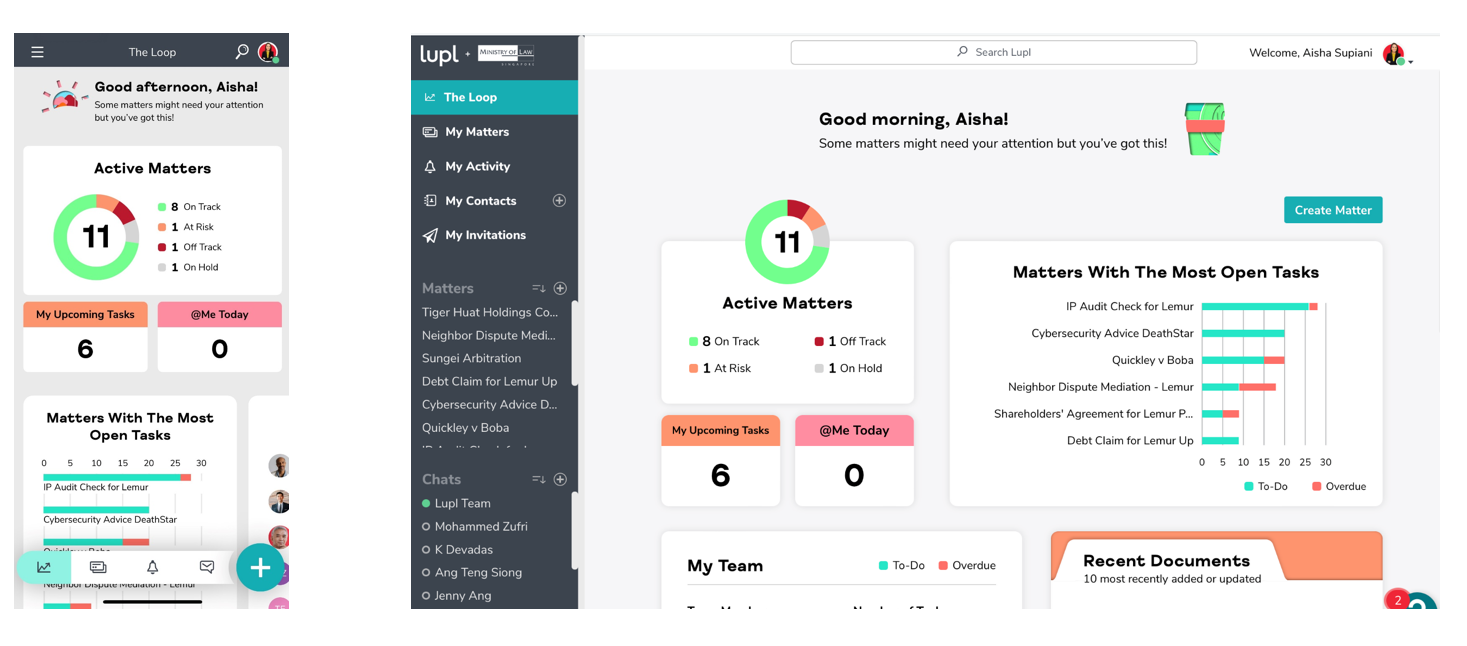
Dashboard view of LTP (Credit: https://ltpi.mlaw.gov.sg/ltp)
Insight MinLaw: Why launch the initiative now?
Alyssa: Digitalisation has been a multi-year effort for MinLaw. Since 2017, MinLaw has embarked on various efforts to encourage digitalisation, particularly among the SMPs. Most of the earlier initiatives were targeted at extending grants that subsidised the costs of onboarding selected digital solutions.
However, the pain points experienced by law firms during technology adoption go beyond the dollars and cents. A key challenge lies in the lack of the economies-of-scale to effectively identify, curate, and deploy technology solutions. This calls for a more direct form of support by providing the actual solutions that can address the digitalisation challenges faced by the industry.
The timing is right for a more direct support like the LTP, because the COVID-19 pandemic has renewed the industry’s interest and appetite in technology adoption. During the Circuit Breaker period, many SMPs found it challenging to continue with their business operations as they lacked the digital means to transit fully into remote working. With this experience in mind, SMPs have become more open to adopting legal technology.
Insight MinLaw: What do you think differentiates the LTP from other LegalTech platforms?
Alyssa: I think what sets the LTP apart is the co-creation approach MinLaw has taken to develop the LTP. It is a continual process which involves an established active feedback loop with the legal community, to test and provide their insights and suggestions to refine the platform.
It was through this process that we identified important Singapore-specific features, such as the WhatsApp integration I mentioned earlier, and have comments consolidated on the LTP. As far as we know, such an integration is an industry-first, because we heard our lawyers say that WhatsApp is a mode of communication that clients here commonly use.
Moving forward, we will build more Singapore-specific features, such as linkages to public systems including eLitigation– which will be made available later. The enhanced access allows lawyers to be more efficient in using these systems. Such integrations are possible only with the strong support of the Government and public institutions.
Insight MinLaw: What was your experience like collaborating with MinLaw? Was there a eureka moment? Tell us what went on behind the scenes.
Matt: I remember reading MinLaw’s Technology and Innovation Roadmap back in late 2020, thinking how unique it was for the public sector to be getting behind legal technology for the benefit of law firms and their clients. It is the only country I can think of where such support and backing exists.
Of course, a roadmap is one thing – delivering on it is another – and there has been a huge amount of hard work in the background over several months, from MinLaw, Lupl, various industry groups and our integration partner companies such as Tessaract, Clio, LexisNexis, iManage, Net Documents and others.
Insight MinLaw: Tell us more about the funding programme and other ways in which MinLaw is supporting law firms’ onboarding to the LTP?
Alyssa: Cost is an important consideration for law firms when it comes to digital adoption. For the LTP, we partnered with Infocomm Media Development Authority and Enterprise SG to roll out a funding programme where law firms can obtain substantial support, up to 70% for up to two years. This will help them significantly in lowering the initial costs of adoption.
Apart from funding, our technology provider, Lupl, has also provided a dedicated onboarding and customer success team to guide the law firms adopting the solution. There is also 24/7 tech support to address issues timely. All these go towards ensuring a smooth and seamless onboarding process to the LTP for law firms.
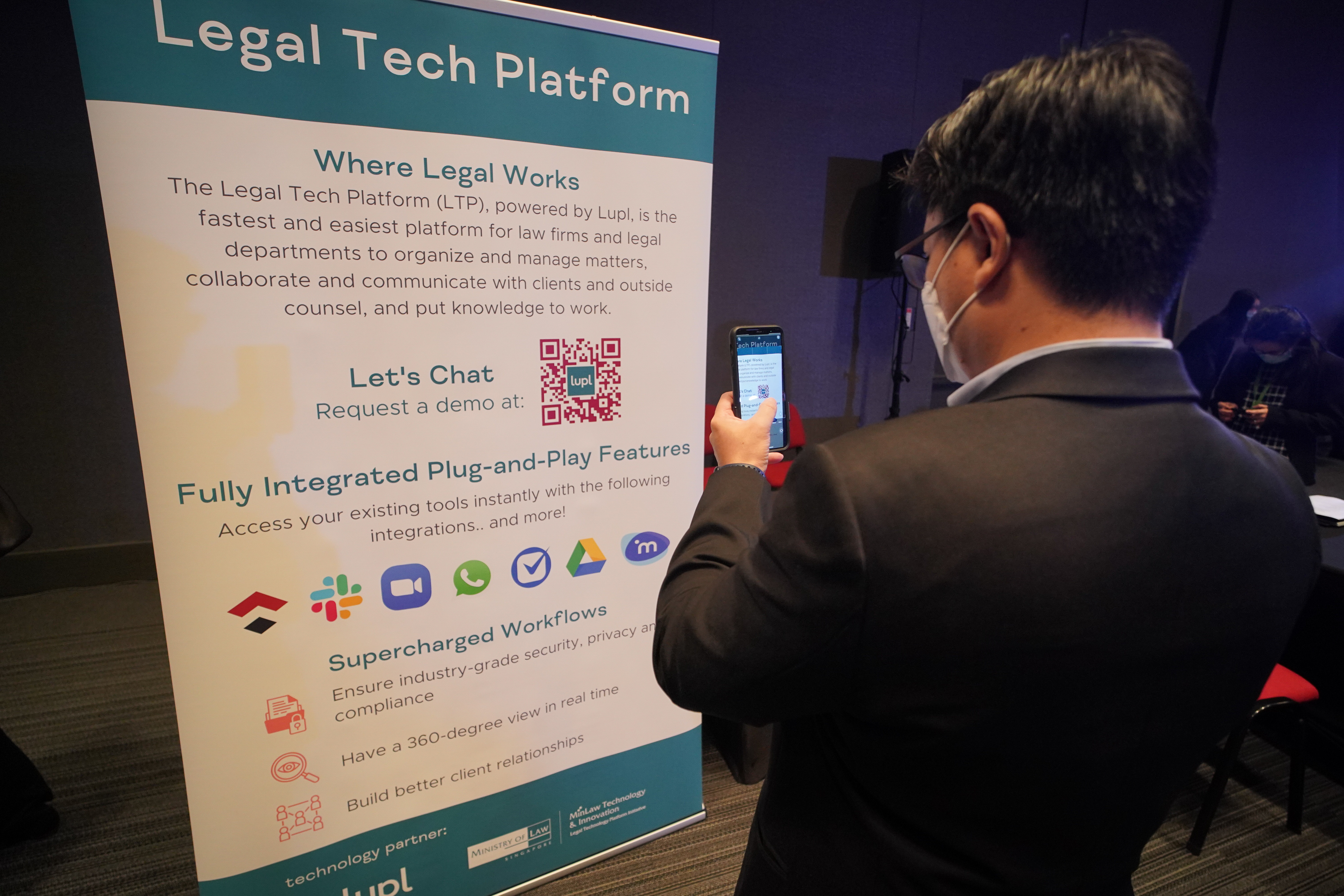
Participant finding out more about LTP at the launch event
Insight MinLaw: What future developments can we look forward to in terms of the LTP? And what is the vision for the LTPI?
Matt: We have come a long way in a short period of time. But we are not done! Our commitment to Singapore firms is that we will keep listening and keep responding. Some of the areas we are prioritising right now include linking up with Government and public systems, like SingPass. We have also heard some requests for integrations or features to help streamline Know Your Customer and Anti-Money Laundering software. That is something we are also actively exploring.
Finally, we continue to add depth and breadth to the native features of the platform itself. One of our most popular features is Matter Templates – think of these as pre-built matters that help automate matter setup, accelerate the process, and reduce risks. We are looking to add more Singapore-specific content to the library, so stay tuned.
Most importantly, our message to Singapore law firms is – to keep the ideas coming! The LTP exists to help make things easier and efficient for the benefit of you and your clients – and this is your opportunity to tell us what you would like to see. Your ideas will shape the future of the LTP.
Alyssa: We hope that availing an easy to use, low-cost, “one-stop solution” that could fulfil most of the law firms’ digitalisation needs will accelerate the digitalisation journeys of the Singapore law firms. At the firm-level, law firms can benefit from productivity gains and operational resilience. At the industry level, it brings us closer to our ambitions of modernising the Singapore legal sector and spurring more legal technology innovation here.
Insight MinLaw: Do you think there will come a day when lawyers are replaced by technology? Why?
Alyssa: The short answer is no, at least not in our lifetime.
There is still a lot of room to leverage technology for the more standardised and repetitive work, such as drafting legal letters, billing and accounting. According to a report by Deloitte, 39% of legal jobs can be automated. For complex work though, such as a multi-billion-dollar Mergers & Acquisitions transaction, or in mediation and arbitration, which requires a high level of reasoning, creativity, and emotional intelligence, chances are that people would still be more comfortable with their trusted legal professionals.
We should see technology as augmenting and enhancing what our lawyers have to offer, because what it does is it enables our lawyers to improve the quality of their work, free them up to do higher value-add work and service their clients better.
So really, what technology does is it not only does not replace lawyers’ work, but in fact reduces laborious and repetitive manual work which are less meaningful to them, so that they don’t waste their time and suffer from burn-out.
Last updated on 1 Aug 2022
Other stories you may like:
The Future is LegalTech
In Conversation with: Dean Simon Chesterman

